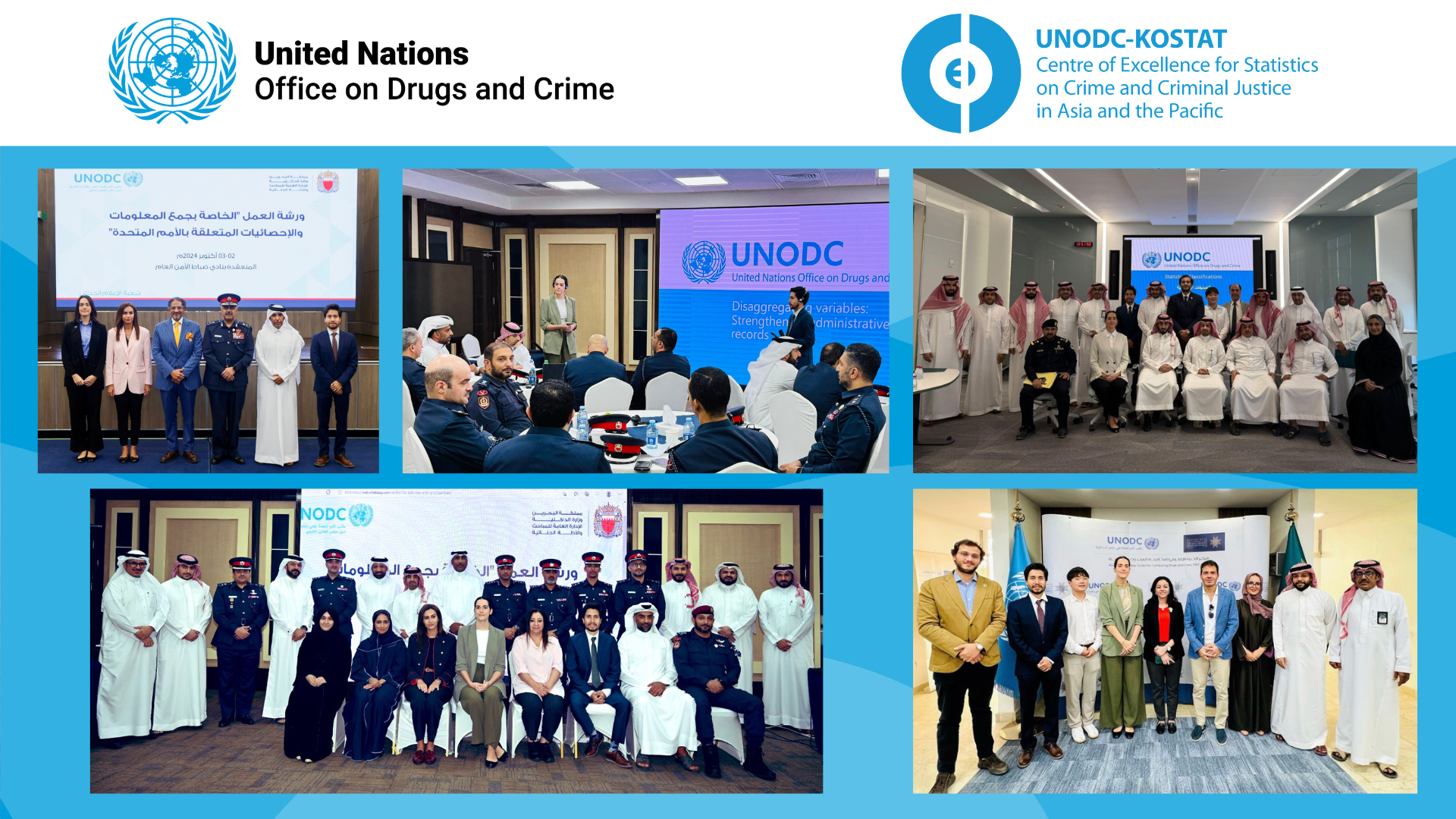
Manama (Bahrain), Riyadh (Saudi Arabia), 2-10 October – The CoE, in collaboration with UNODC Mexico and UNODC Research and Trend Analysis Branch (RAB), jointly delivered training sessions on the International Classification of Crime for Statistical Purposes (ICCS) in Bahrain and Saudi Arabia. The trainings were organized in collaboration with the UNODC Office for the Gulf Cooperation Council Region (OGCCR), which supported the trainers throughout the events by providing their regional expertise.
The workshops introduced participants from national institutions with relevance to crime and criminal justice statistics to the ICCS, detailing its principles, application, benefits, strengths and how to address potential challenges during implementation.
The first training took place over two days in Bahrain, organized with the support of the Ministry of Interior (MOI). The opening session featured remarks from Hatem Aly, Regional UNODC Regional Representative for the GCC Region and a representative from MOI. Trainers presented sessions on the development, structure, and implementation of the ICCS, followed by practical activities such as mapping national criminal acts to the relevant ICCS codes. These exercises allowed participants to gain a clear understanding of the ICCS coding structure and how to implement it in the national context. Additionally, UNODC provided an implementation roadmap, outlining recommended steps for enhancing the crime and criminal justice statistics classification system in Bahrain, emphasizing inter-institutional cooperation. Participants gathered in inter-agency groups to propose national implementation roadmaps and identify potential challenges in implementing the ICCS in the country. Participants included 28 technical experts from the relevant government agencies that collect, produce or disseminate crime statistics.
The second training was held in Riyadh for crime and criminal justice institutions in Saudi Arabia, with the support of Naif Arab University of Security Sciences (NAUSS), over the course of 5 days. Opening with remarks from the Vice President of the Department of Training at NAUSS, stressing the importance of crime statistics in ensuring timely and effective response to crime, the training provided a comprehensive introduction to ICCS to equip the participants with a clear understanding of the ICCS and the process of building correspondence tables and adapting the ICCS to national needs. A practical case study showcasing the experience of the Republic of Korea in implementing the ICCS was also delivered and garnered interest in the challenges faced during the development process and national counting rules. The trainers also led interactive exercises of mapping crime to the ICCS and discussing the current crime data collection and crime classifications in each institution represented. The sessions prompted lengthy discussions and Q&A sessions among the participants. In total, 28 participants from crime and criminal justice institutions joined the training.
The workshops successfully achieved their goal of fostering collaboration between national institutions in the field of crime and criminal justice statistics, raising awareness of the necessity for a standardised national crime classification based on international standards and highlighting the critical role of inter-agency cooperation. Concrete examples and exercises enabled a profound understanding of the ICCS, its implementation process and its future national roadmap. Throughout the workshops, participants actively engaged in the interactive exercises, and representatives from various national institutions expressed their commitments to advancing inter-agency collaboration and reiterated their dedication to implementing the ICCS.
The CoE will continue collaborating with member states throughout the region to enhance crime data availability and quality, and to support the implementation of the ICCS.
Further information on the CoE can be found here, Twitter @CoE_UNODC and Facebook @UNODC.KOSTAT.CoE.